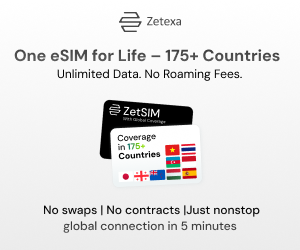
From Stadiums to Smartphones: Why Fan Engagement Needs a Digital Upgrade
When you think of sports fans, you probably imagine roaring stadiums, packed living rooms during big finals, or social media timelines flooded with match highlights. However, according to new research commissioned by global cloud communications platform Infobip, today’s fans are seeking much more than game-day adrenaline.
They want year-round connection — and right now, many clubs aren’t delivering.
Fans Feel Left Out
A global study of 1,500 fans of American football, baseball, soccer, and cricket across the US, Europe, and India revealed a striking truth: two-thirds (66%) of fans feel disconnected from their clubs due to poor communication. Among younger fans under 35, that number shoots up to 81%.
It’s not about loyalty—fans still follow their teams passionately—but the way clubs communicate is often one-sided, generic, and frankly uninspiring. Nearly half of the respondents said they feel like “just a number.” That’s a dangerous sign in an era where entertainment choices are endless and attention spans are shorter than ever.
Beyond Match Day: The Off-Season Opportunity
One of the strongest findings from Infobip’s report is the appetite for off-season content. More than 70% of fans said they want ongoing updates when the games stop — not just radio silence until preseason begins. Think behind-the-scenes footage, player personal stories, training clips, or even interactive Q&As.
This isn’t entirely new. The NBA, for example, has invested heavily in year-round digital storytelling, producing docuseries, player vlogs, and even reality-style behind-the-scenes shows. Clubs that ignore this demand risk losing relevance in the “off months” when younger fans, especially Gen Z, expect continuous content the way they get it from creators on TikTok or YouTube.
Social Media: Popular but Limited
Right now, 82% of fans use social media to follow their favorite teams. Twitter (X), Instagram, TikTok, and YouTube are natural hubs for highlight reels and quick updates. But Infobip’s research suggests that many fans want more intimate, exclusive, and personalized content—something they can’t get from a standard social feed.
This is where direct messaging channels and mobile apps come in. Think WhatsApp notifications about exclusive merchandise drops, RCS-powered chatbots that deliver real-time stats during games, or team apps with members-only access to content.
Clubs that have experimented in this space have already seen results. Juventus launched a “Juventus Official Fan Token” giving supporters digital perks, while Manchester City’s Cityzens app provides tailored match previews and loyalty rewards. These models show the appetite is there — the challenge is scaling it while keeping affordability in check.
The Price Problem
Affordability remains a sore spot. According to the study, 61% of fans feel priced out of supporting their team, with rising subscription costs, ticket prices, and merchandise putting authentic engagement out of reach.
This financial barrier is key to why personalized digital engagement is becoming so critical. If fans can’t afford season tickets or new kits every year, clubs must find new ways to make them feel valued. Personalized digital experiences—whether free or low-cost—can help close the gap.
Enter AI-Powered Engagement
This is where Infobip comes in. The Croatian-founded, global cloud communications platform has been positioning itself as the connective tissue between organizations and consumers. In sports, that translates into AI-powered chatbots and conversational experiences that make fans feel seen and heard, 24/7.
Take their work with the MoneyGram Haas F1 Team. Infobip rolled out messaging tools including WhatsApp chatbots and is developing “RaceMate,” an AI companion, alongside an interactive version of F1 driver Oliver Bearman. The idea? Bring fans closer to the action, even if they’re thousands of miles from the circuit.
In the US, Infobip supports the Los Angeles Chargers with Apple Messages for Business, enabling exclusive content drops and instant updates. And in Mexico, Infobip teamed with Claro Sports to launch a sophisticated RCS-powered chatbot offering scores, athlete news, and interactive features directly on mobile.
These aren’t gimmicks. They represent the new direction of fan engagement — conversational, personalized, and on-demand.
The Bigger Picture: What Others Are Doing
Infobip isn’t the only player in this space. Tech giants and startups alike are racing to reshape the fan experience.
- Satisfi Labs has built AI chatbots for MLB teams and the US Open, allowing fans to ask about everything from parking to player stats.
- Socios.com has made waves with blockchain-based fan tokens, giving supporters voting rights on minor club decisions and access to unique rewards.
- Deltatre, a sports tech company, provides OTT platforms and immersive digital solutions for leagues like UEFA and the NFL.
What ties these examples together is the recognition that fans aren’t just customers—they’re communities. The more personalized and interactive the experience, the stronger the sense of belonging.
What Trends Are Emerging?
From analyzing this space, a few clear trends stand out:
- Year-Round Content—Fans no longer tolerate silence in the off-season. Always-on storytelling is becoming the norm.
- Conversational Interfaces—Messaging apps are overtaking email as the main engagement channel, with WhatsApp, RCS, and Apple Messages leading the way.
- AI Companions & Gamification—Virtual team mascots, AI-driven trivia, and gamified fan challenges are bringing new life to engagement.
- Affordability Pressure—Clubs must balance premium paid services with inclusive free options to avoid alienating large swaths of their base.
- Data-Driven Personalization—Segmented, tailored communication—the kind Netflix or Spotify delivers — is increasingly expected in sports.
Conclusion: A Wake-Up Call for Sports Clubs
Infobip’s research should serve as a wake-up call for sports organizations everywhere. Fans aren’t walking away from their teams—they’re walking away from outdated communication models. The “broadcast once, sell hard, disappear until next match day” approach is dead.
Instead, clubs must embrace a two-way relationship that mirrors the personalized digital experiences fans already get from entertainment platforms, social apps, and even retail brands. Those who succeed won’t just sell more tickets or jerseys. They’ll create resilient, loyal communities that stick with them through wins, losses, and everything in between.
Looking at competitors in this space—from Satisfi Labs’ chatbots to Socios’ fan tokens—it’s clear that technology is not the barrier. Willpower and strategy are. Sports clubs that fail to innovate risk being left behind, while those that invest in conversational AI, year-round storytelling, and affordable, inclusive engagement models stand to redefine what fandom looks like in the 21st century.
Or, to put it simply: the ball is in the clubs’ court. Fans are waiting. The question is whether the teams they love will finally start listening.










